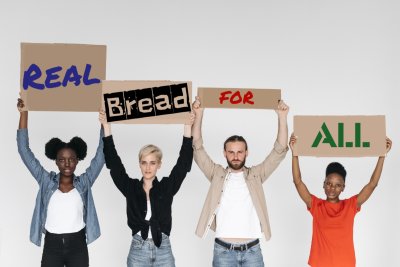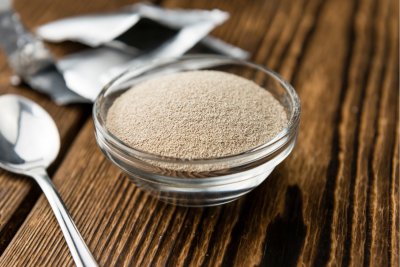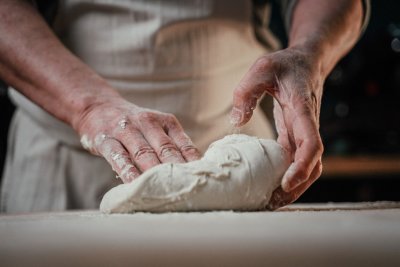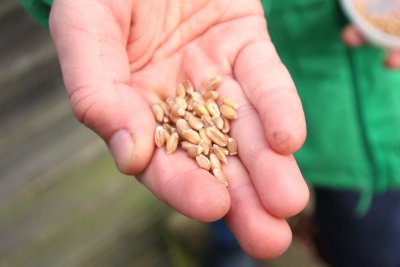Real Bread is Food for Life!
From 1 September 2013, schools, hospitals and all other caterers serving Real Bread can earn points towards silver and gold Food for Life Catering Mark certification from The Soil Association.
The Real Bread Campaign is proud to announce that schools, hospitals and all other caterers serving Real Bread can now earn points towards silver and gold Food for Life Catering Mark certification from The Soil Association.
Caterers able to show that they serve what the Campaign defines as Real Bread (simply that it was made using no so-called processing aids or any other artificial additives) at least once a week will now gain ten points towards the silver and gold Catering Mark.
Real Bread Campaign coordinator Chris Young said: ‘We’re delighted that caterers will receive recognition from the Food for Life Partnership for getting real. It’s even better news for their customers who’ll be able to choose and enjoy delicious Real Bread.’
Mike Bond, Catering Mark Manager, added: ‘The Food for Life Catering Mark rewards caterers who serve fresh, healthy and sustainable food. We recognise that Real Bread fits with the principles of the scheme so we are delighted that caterers who are making or serving Real Bread can now achieve ten points towards the silver and gold Catering Mark.’
Amazingly the Campaign’s simple definition of Real Bread rules out up to 97% of the loaves sold in the UK, although more and more communities are finding and sharing many different ways to help to make Britain’s bread better for us, better for our communities and better for the planet. Examples include ex-soldiers working their way back to Civvy Street at the Veterans’ Artisan Bakery in Catterick; people living with mental health issues befitting from the therapeutic nature of bread making as trainees at The Better Health Bakery in east London; and people with learning disabilities taking their places in local workforce and community as trained bakers at The Lantern Bakery in Hampshire.
Chris Young went on to say: ‘We hope to see thousands of Food for Life Catering Mark holders going further than once a week by serving Real Bread with every meal and making improvements beyond simply kicking the additive habit.’
**ENDS**
For more information please contact Chris Young: chris [at] sustainweb.org or 0203 5596 777
www.realbreadcampaign.org twitter.com/realbread facebook.com/realbreadcampaign
For more information about the Food for Life Catering Mark, please contact Jenny Collins: jcollins [at] soilassociation.org or 0117 314 5178
www.sacert.org/catering
NOTES
Food for Life Catering Mark silver and gold standard 3.3.17 (Real Bread) states:
‘The Real Bread Campaign defines Real Bread as made without the use of any processing aids or any other artificial additives in the flour or dough. Real Bread can be unleavened flatbread or bread leavened with bakers' yeast (fresh or dried active) or sourdough culture. To achieve 10 points for Real Bread you will need to:
- Serve Real Bread as part of a dish, in sandwiches or as an accompaniment (such as with soup) at least once a week
- Have evidence that the bread fulfils the Real Bread definition above.’
More information about the Food for Life Catering Mark and a full list of organisations that have achieved it, as well as the latest meal numbers, can be found at: www.sacert.org/catering
Better bred bread
In addition to being made with no artificial additives, the bread procurement criteria that the Campaign recommends all caterers adopt include:
- To support local employment and economy, the preference for bought-in Real Bread is that it should be supplied by an independently-owned bakery that is as local as possible.
- A preference for wholemeal bread, or at least bread with a higher fibre and natural vitamin/mineral content higher than roller-milled white.
- A preference for flour and bread products to have been produced from wheat that has been grown and milled as locally as possible to the point of serving.
- A preference for organic flour.
- The sodium in bread should ideally be 350mg/100g and no more than 400mg/100g (i.e. the Food Standards Agency’s target of maximum 1% salt).
- A preference for bread to be produced without the use of added fat or sugars. This provision does not apply to enriched breads such as brioche and focaccia.
Real Bread Campaign initiatives include…
Together We Rise The Campaign is working to secure funding for its planned new main project, which will help thousands of people around the UK living with mental health issues or otherwise have a tougher time than most to benefit from the therapeutic, social and employment opportunities Real Bread making offers. You can find details of our plans at: http://bit.ly/NVGPoi
- Knead to Know: the Real Bread starter To date, more than 2500 people have requested the Campaign’s guide to setting up a successful Community Supported Bakery or home-based microbakery
- The Real Bread Finder The only online directory dedicated to helping people find where to buy Real Bread locally in now used by more than 570 bakeries. Free for bakers to add, and people to seek, local places to buy Real Bread.
- The Real Bread Loaf Mark is helping more than 120 bakers to show, and countless shoppers to see, ‘this is Real Bread!’
- Membership The Campaign’s mutually-supportive national network helps bakers and everyone else who cares about the state of bread in Britain to connect with each other to ask for and share ideas and information to help the rise of Real Bread. Membership fees, at four accessible levels from individuals to large companies, help to fund the Campaign’s work.
- Sourdough September A whole month of sourdough lovers around the UK sharing and demystifying the delicious delights of the original (and some would say still the best) form of leavened Real Bread
Published Tuesday 3 September 2013
Real Bread Campaign: The Real Bread Campaign finds and shares ways to make bread better for us, better for our communities and better for the planet. Whether your interest is local food, community-focussed small enterprises, honest labelling, therapeutic baking, or simply tasty toast, everyone is invited to become a Campaign supporter.





